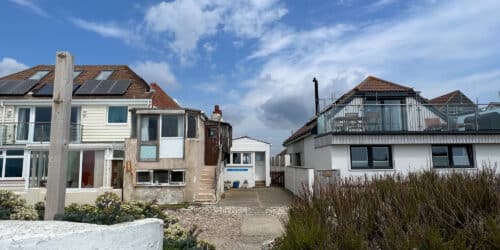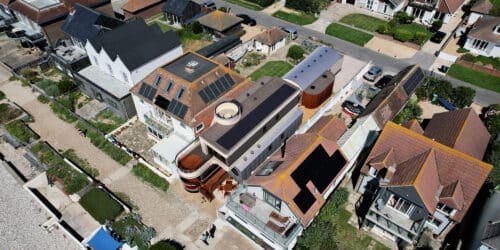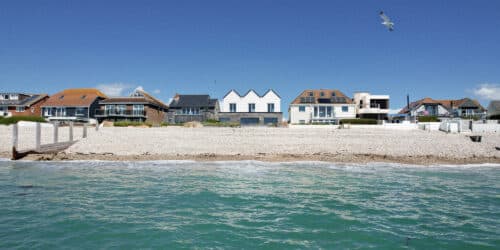Seaside Architecture
A new multi generational family holiday home inspired by a London Tram
The scheme replaces all structures currently on the site with one building that would still retain an element of separate
spaces through the use of layout, height and materials. This would create three separate residential units that cater for
multi-generational living when the family use their holiday home.
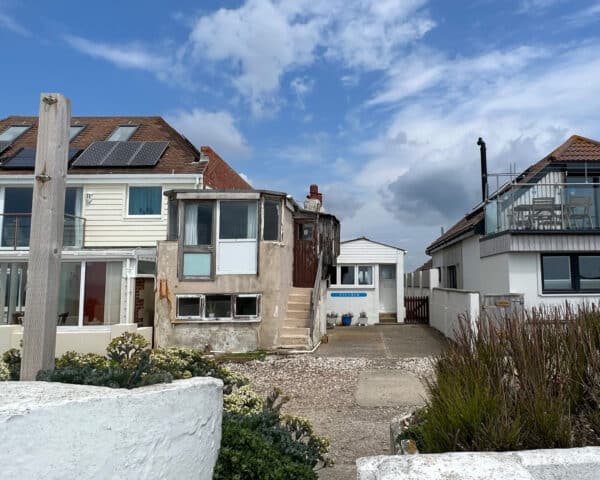
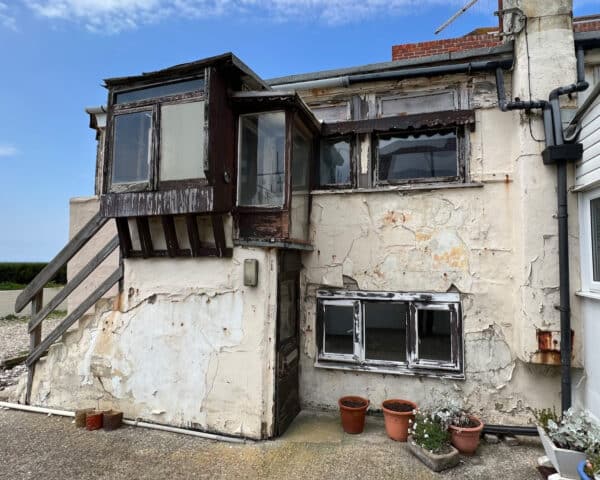
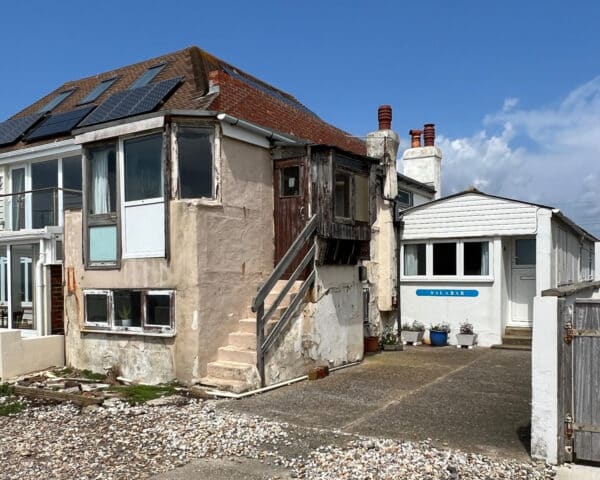
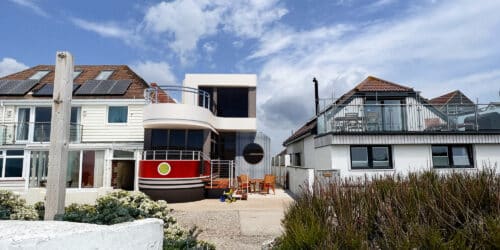
Celebrating the Tram
Replacing a seaside icon
Settlement along the beach front at West Wittering began after the First World War when trams & railway carriages were repurposed as holiday homes. Over time these structures became subsumed as the properties settled & expanded. Today only few of these original carriage dwellings remain.
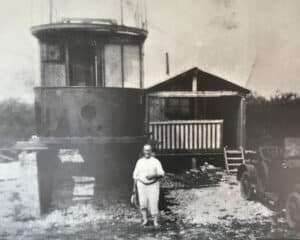
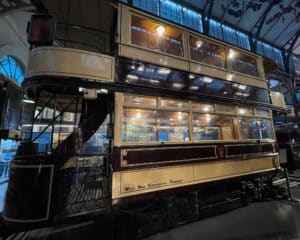

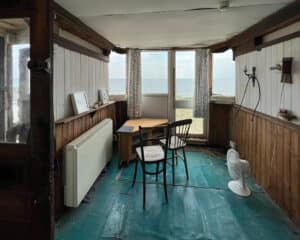
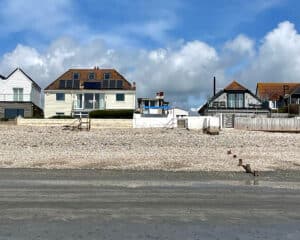
Settlement along the beach front at West Wittering began after the First World War when trams & railway carriages were repurposed as holiday homes. Over time these structures became subsumed as the properties settled & expanded. Today only few of these original carriage dwellings remain.
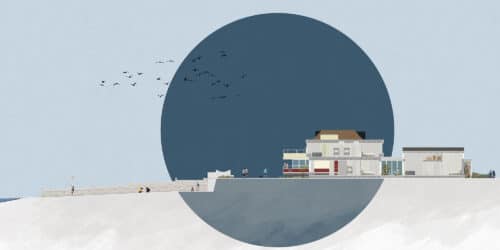
Plan
Floor Plan
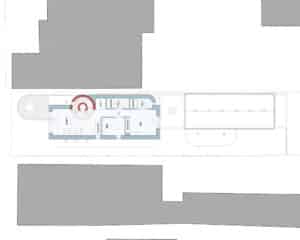
Post war beach settlement
The original settlers
On the historic map from 1910 there were no dwellings along West Wittering beach front. It was after the turmoil of the First World War that folk began to set claim to the magnificent south facing sea views and unspoilt seafront. Early settlers recycled disused railway carriages & trams to create holiday accommodation by the seaside.
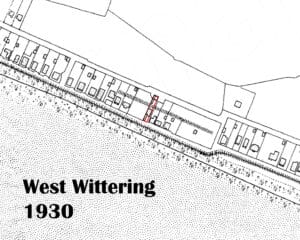
On the historic map from 1910 there were no dwellings along West Wittering beach front. It was after the turmoil of the First World War that folk began to set claim to the magnificent south facing sea views and unspoilt seafront. Early settlers recycled disused railway carriages & trams to create holiday accommodation by the seaside.
